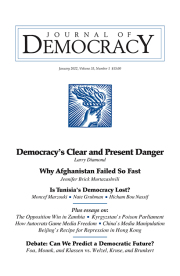Why did the Islamic Republic of Afghanistan collapse so suddenly? Tens of thousands of people flooding the Kabul airport to escape the Taliban’s rapid advance prompted foreign policy analysts to argue that Afghanistan was ungovernable, notes Jennifer Brick Murtazashvili, associate professor at the University of Pittsburgh and founding director of the Center for Governance and Markets.
The conventional wisdom was that its government and society were hopelessly corrupt, and its values were incompatible with democracy. Such thinking, while perhaps understandable, is completely wrong. Painting Afghan society with a broad brush only obfuscates the mistakes of those in power, she writes for Slate:
The policy choices made by Washington and Kabul since the 2001 invasion are largely to blame for Afghanistan’s collapse. The international community made many avoidable errors in its state-building attempts. These contributed to the creation of an overcentralized and unaccountable Afghan state that lacked legitimacy in the eyes of its people. While the sources of this legitimacy crisis were multiple and interwoven, as I have recently argued, three stand out: the post-invasion constitution, the priorities of the donor community, and President Ashraf Ghani’s arrogant leadership. Had the Afghan state not been considered illegitimate by the people, the Taliban would not have had a fighting chance inside of Afghanistan. In other words, without the kindling of poor governance, the fire of insurgency would never have been lit.
 Corruption undermined the Afghan republic, Murtazashvili concludes. But that was only possible because the central government was accountable not to society but to international donors—and therefore lacked popular legitimacy. Money cannot win hearts and minds.
Corruption undermined the Afghan republic, Murtazashvili concludes. But that was only possible because the central government was accountable not to society but to international donors—and therefore lacked popular legitimacy. Money cannot win hearts and minds.
The Taliban’s arch-conservative interpretation of Islam has pushed women out of the workplace, and cast most young women and girls out of school, PBS NewsHour reports (above). But as Jane Ferguson and videographer Eric O’Connor report, some women in Afghanistan are not taking this lying down.
A full version of this essay appears in the January issue of the Journal of Democracy.
The National Endowment for Democracy’s family of NGOs marshalled resources in the U.S. and around the world to arrange a series of flights for their former staff and families from Kabul to Abu Dhabi and then on to Albania, where they had negotiated landing rights and accommodations directly with the Albanian government, Public Policy Fellow Hallam Ferguson wrote in a must-read essay for The Wilson Quarterly. RTWT
The original sin of the U.S. intervention was to resurrect old institutions that had their roots in #Afghanistan’s authoritarian past, @jmurtazashvili writes for @slatem, adapted from her original @JoDemocracy article . https://t.co/tMZul0msom
— Democracy Digest (@demdigest) February 3, 2022







